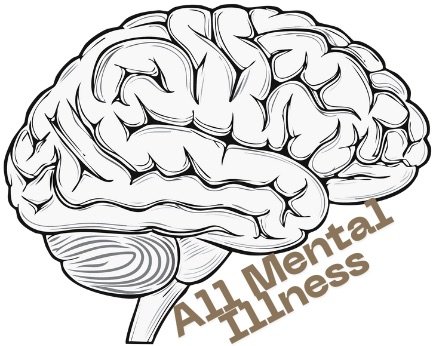How to Talk to a Therapist for the First Time
So, you finally booked your first therapy session. Maybe you’ve been thinking about it for months—or years—and now it’s actually happening.
First off, that’s something to be proud of. Deciding to talk to a therapist is not a sign of weakness; it’s an act of courage and self-respect.
Still, you might be wondering: What am I supposed to say? Will it be awkward? Do I have to tell them everything right away?
This guide will walk you through how to prepare, what to expect, and how to make that first conversation meaningful and comfortable.
An article from Psychology Today notes that starting therapy can feel like meeting yourself for the first time. It’s not about saying the “right” things—it’s about showing up honestly.
Why It’s Normal to Feel Nervous Before Therapy
Even people who seem confident get nervous before their first session. It’s human. You’re about to open up to a stranger about personal thoughts you might not have shared with anyone else.
Think of therapy like a mental fitness session. You’re not expected to perform—you’re there to practice understanding yourself.
If you’ve read our post Positive Affirmations for Self Love – Reprogram Your Mind, you already know that positive self-talk reduces fear. Try repeating before your session:
“I deserve to be heard, and I’m safe to speak honestly.”
According to the Mayo Clinic, normalizing therapy as part of self-care helps remove stigma and anxiety surrounding the first visit.
How to Prepare Before Meeting Your Therapist

How to Talk to a Therapist for the First Time
Preparation helps turn nervous energy into confidence. You don’t need a script, but having clarity helps you feel grounded.
1. Reflect on Why You’re Going
Ask yourself: What made me decide therapy was right for me now?
Maybe it’s stress, anxiety, relationship issues, or a desire for personal growth. Writing these thoughts down helps you start with intention.
You can use journaling as part of this process—if you’re not sure how, try incorporating techniques from our post Beautiful Mental Health Tattoos to Inspire Healing, which explores how creative expression supports emotional healing.
2. Make a Small List of Topics
You don’t need to plan a speech—just jot down key themes:
- “I’ve been feeling anxious at work.”
- “I’m struggling with sleep.”
- “I want to understand my emotions better.”
This helps your therapist guide the conversation instead of you trying to fill silence.
3. Choose Comfort Over Performance
Wear something comfortable. Bring water. Arrive early or log in a few minutes ahead if it’s online. Simple comfort signals safety to your nervous system.
The American Psychological Association recommends treating your first session as an introduction, not an interview. You’re building rapport, not passing a test.
What to Expect During the First Session
Your first meeting is less about “fixing” and more about getting to know each other.
Most sessions start with simple questions:
- “What brought you here today?”
- “Have you been in therapy before?”
- “What are your goals?”
You can answer honestly, even if your answer is: “I’m not sure yet.”
Therapy isn’t a one-size-fits-all approach. The therapist might take notes, ask clarifying questions, or just listen quietly. Their role is to create a safe, judgment-free space for your thoughts to unfold.
he NIH explains that early sessions are about building trust and identifying communication style—not diving deep into trauma.
How to Talk Honestly Without Feeling Overwhelmed
Opening up can feel heavy, especially if you’ve been holding things in for a long time.
Here’s how to make it easier:
1. Start with What Feels Safe
You don’t have to unpack everything at once. Begin with what’s easiest to share. As trust grows, deeper topics will come naturally.
Therapy works best when honesty and pacing coexist—you’re not being graded for how quickly you “open up.”
2. Use “I” Statements
Phrases like “I feel,” “I’ve noticed,” or “I need” focus on your experience without self-judgment. This language helps therapists understand emotions and patterns clearly.
3. Pause When You Need To
If emotions rise, breathe. Silence is part of therapy. Your therapist knows that processing takes time.
In our article Positive Affirmations for Self Love, we discuss how self-compassion quiets mental pressure—the same principle applies here.
Sunshine City notes that emotional pauses during therapy are healthy signs of processing, not weakness.
What Not to Worry About
1. You Don’t Have to Sound “Put Together.”
Therapy isn’t about polished storytelling; it’s about truth. You can laugh, cry, ramble, or sit quietly—it’s all part of healing.
2. You Won’t Shock Your Therapist.
Professionals hear everything from grief to guilt to humor. Their goal isn’t to judge but to understand your reality.
3. You Can Ask Questions Too.
If you’re unsure how therapy works, ask.
Examples:
- “How do you usually structure sessions?”
- “What approach do you use?”
- “What happens if I don’t know what to talk about one day?”
The Mental Health Foundation encourages open communication between clients and therapists as part of building a collaborative relationship.
Managing Expectations for Progress

How to Talk to a Therapist for the First Time
Therapy isn’t a quick fix; it’s a relationship. Some sessions will feel profound, others quiet or even uncomfortable—and that’s normal.
Healing often looks like learning, unlearning, and then relearning yourself. You might cry during one session and laugh the next. Each emotion is valid.
If you ever feel unsure whether therapy is helping, discuss it with your therapist. Feedback is part of the process. They can adjust methods, pacing, or focus to fit your needs.
Pairing therapy with personal growth habits, like mindfulness or journaling, can speed emotional progress. Try using gratitude or self-reflection prompts from Beautiful Mental Health Tattoos to Inspire Healing as writing themes between sessions.
How to Talk to a Therapist for the First Time
Tips to Get the Most Out of Therapy
- Be Honest, Even When It’s Hard – Therapists can only help with what you share.
- Take Notes After Sessions – Writing down insights helps reinforce what you learned.
- Avoid Overthinking Between Sessions – Change takes time. Focus on small wins.
- Ask for Homework if You Want It – Some therapists offer reading or journaling to deepen reflection.
- Give It a Few Sessions – Real trust builds over time.
How to Talk to a Therapist for the First Time
How to Handle Emotional Reactions After the Session
It’s common to feel emotionally drained after talking deeply for an hour. That’s normal—it means you did meaningful work.
You can ground yourself afterward by:
- Taking a short walk outside.
- Listening to calming music.
- Journaling about what came up.
- Practicing breathing exercises or gentle meditation.
You’ll find a helpful guide in our post Positive Affirmations for Self Love to reframe heavy thoughts into compassion once your session ends.
How to Talk to a Therapist for the First Time
How to Know You’ve Found the Right Therapist
The right therapist feels like a balance of safety and challenge. You should feel respected, understood, and encouraged—but not judged or rushed.
It might take meeting a few therapists to find one whose energy fits yours, and that’s okay. You’re not being “difficult” by wanting comfort; you’re advocating for your well-being.
If you’re unsure after a few sessions, say so. Therapists appreciate honesty—it helps them tailor their support or refer you to someone better suited.
How to Talk to a Therapist for the First Time
Final Thoughts: Talking to a Therapist Is a Conversation, Not a Confession
Your first therapy session isn’t an interrogation—it’s an introduction to understanding yourself more deeply. You don’t need the perfect words or a flawless backstory. You only need honesty and curiosity.
Think of therapy as building a bridge between your thoughts and healing. The first conversation may feel unfamiliar, but it’s the first step toward clarity, calm, and growth.
As you continue your journey, explore creative and mindful healing resources on AllMentalIllness.com, such as:
- Positive Affirmations for Self Love – Reprogram Your Mind
- Beautiful Mental Health Tattoos to Inspire Healing
Every step, every sentence, and every session brings you closer to self-understanding—and that’s something worth celebrating.

